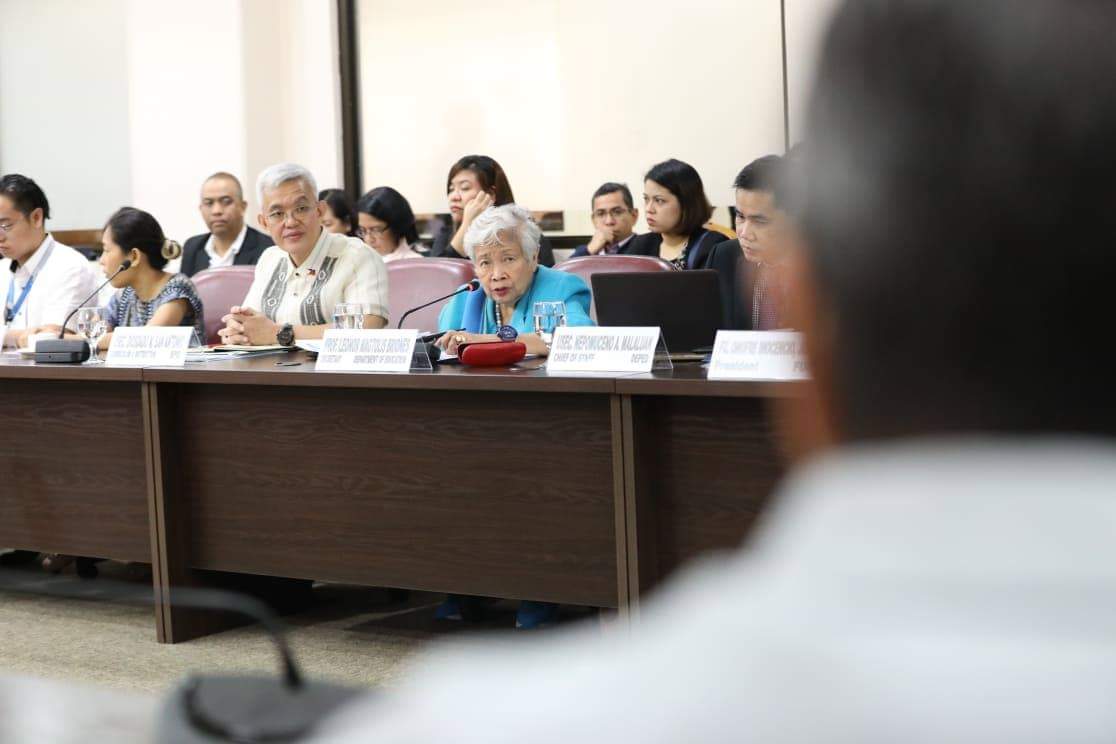QUEZON CITY, February 28, 2020 — As part of the ongoing K to 12 curriculum review, the Department of Education (DepEd) will conduct a nationwide conference of education practitioners and experts on March 25, 2020 to tackle improvements of the curriculum, including the implementation of Mother Tongue-Based Multilingual Education (MTB-MLE).
In a meeting of the Committee on Basic Education and Culture at the House of Representatives on Thursday, Secretary Leonor Magtolis Briones said that the one of the agenda of the conference is to review and update the MTB-MLE transition program.
“We are taking steps on the issues of MTB-MLE. Kailangan maresolve ito kaya lahat nirereview natin, at gusto nating baguhin natin ang challenges including the learning process of our learners,” Briones said.
Republic Act No. 10533 or the Enhanced Basic Education Act directs DepEd to adhere to the principles and framework of MTB-MLE in its curriculum development. Kindergarten and Grades 1 to 3 learners are required to receive instruction, teaching materials, and assessment in their respective regional or native language.
Undersecretary for Curriculum and Instructions Diosdado San Antonio said the DepEd is keen to continue implementing the MTB-MLE despite the early challenges of its implementation.
Usec. San Antonio added that the Department already produced teaching and learning resources for 19 languages of the Philippines, which covered almost 80% of the learners’ population, and are focused to develop resources for indigenous peoples (IPs) languages.
“This year, we hope to be able to do at least 20 IP languages and our roadmap by 2027, all of the estimated 180 IP languages will have their own learning resources for MTB-MLE,” San Antonio added.
K to 12 Curriculum review
Usec. San Antonio noted that the Phase 1 of the review of the K to 12 curriculum is near completion and is set for presentation in the conference in March.
“We are set to find cognitive demands as written in our intended curriculum, if its comparable to our neighboring and first-world countries,” San Antonio said.
San Antonio explained that the review is in three phases: curriculum as implemented; curriculum as assessed; and curriculum as attained.
“Initial review ito but complete in terms of Phase 1. There is really a need to come up with transitional strategies to address congestions in the curriculum,” he shared.
END




